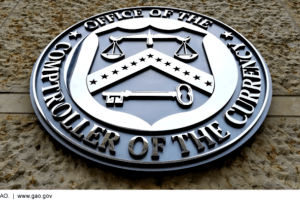
The board of the Federal Deposit Corp. voted to approve changes to the Volcker Rule, which could ease some restrictions under the regulations and provide more clarity on what types of trades are and are not permitted. The Volcker Rule, which is part of the Dodd-Frank Act, generally prohibits banks from engaging in proprietary trading and from owning or controlling hedge funds or private equity funds.
The amendments to the rule, which were also approved by the Office of the Comptroller of the Currency (OCC), give banks more leeway in terms of trading activity and simplify how banks can tell if that trading is permitted by law. The changes to the Volcker Rule were first proposed in May 2018, after years of lobbying by big banks, such as Goldman Sachs, JPMorgan Chase, Morgan Stanley, and others. The move to ease the Volcker Rule is a big win for Wall Street.
Consumer advocates, however, worry that the changes could expose the banking system to the same kind of activity that led to its near collapse in 2007. FDIC Commissioner Martin Gruenberg, a Democrat who backed the Volcker rewrite proposed in May 2018, voted against the final rule, saying it would “effectively undo” the rule’s protections.
Other Democrats oppose the changes. “The final rule published today would curtail prohibitions in a manner that Congress never intended,” said Rep. Maxine Waters, chair of the House Financial Services Committee, in a statement calling for banking regulators to oppose the measure.
After passing the amendments, regulators said it would bring clarity to a rule that has been cumbersome and difficult for banks to follow. “One of the post-crisis reforms that has been most challenging to implement for regulators and industry is the Volcker Rule, which restricts banks from engaging in proprietary trading and from owning hedge funds and private equity funds. Distinguishing between what qualifies as proprietary trading and what does not has proven to be extremely difficult. Meanwhile, banks that do relatively little trading are required to go through substantial compliance exercises to ensure that activities that have long been considered traditional banking activities do not run afoul of the Volcker Rule,” said FDIC Chairman Jelena McWilliams.
What the Final Rule Will Change
- Tailor the rule’s compliance requirements based on the size of a firm’s trading assets and liabilities, with the most stringent requirements applied to banking entities with the most trading activity;
- Retain the short-term intent prong of the “trading account” definition from the 2013 rule only for banking entities that are not, and do not elect to become, subject to the market risk capital rule prong;
- Replace the rebuttable presumption that instruments held for fewer than 60 days are covered under the short-term intent prong with a rebuttable presumption that instruments held for 60 days or longer are not covered;
- Clarify that banking entities that trade within internal risk limits set under the conditions in this final rule are engaged in permissible market making or underwriting activity;
- Streamline the criteria that apply when a banking entity seeks to rely on the hedging exemption from the proprietary trading prohibition;
- Limit the impact of the rule on the foreign activities of foreign banking organizations; and
- Simplify the trading activity information that banking entities are required to provide to the agencies.
The amendments still need to be approved by votes at the Securities and Exchange Commission, the Federal Reserve, and the Commodities Futures Trading Commission, although they are expected to approve the amendments in the coming weeks. Should the rule change gain approval by the other banking regulators, it would take effect on Jan. 1, 2020. ![]()


